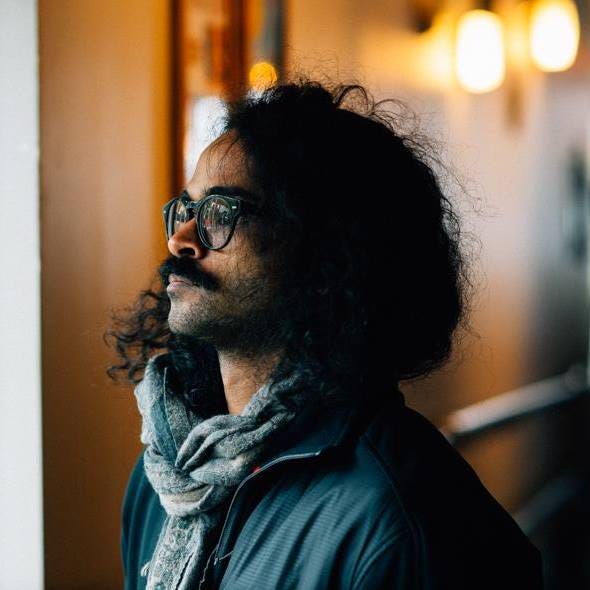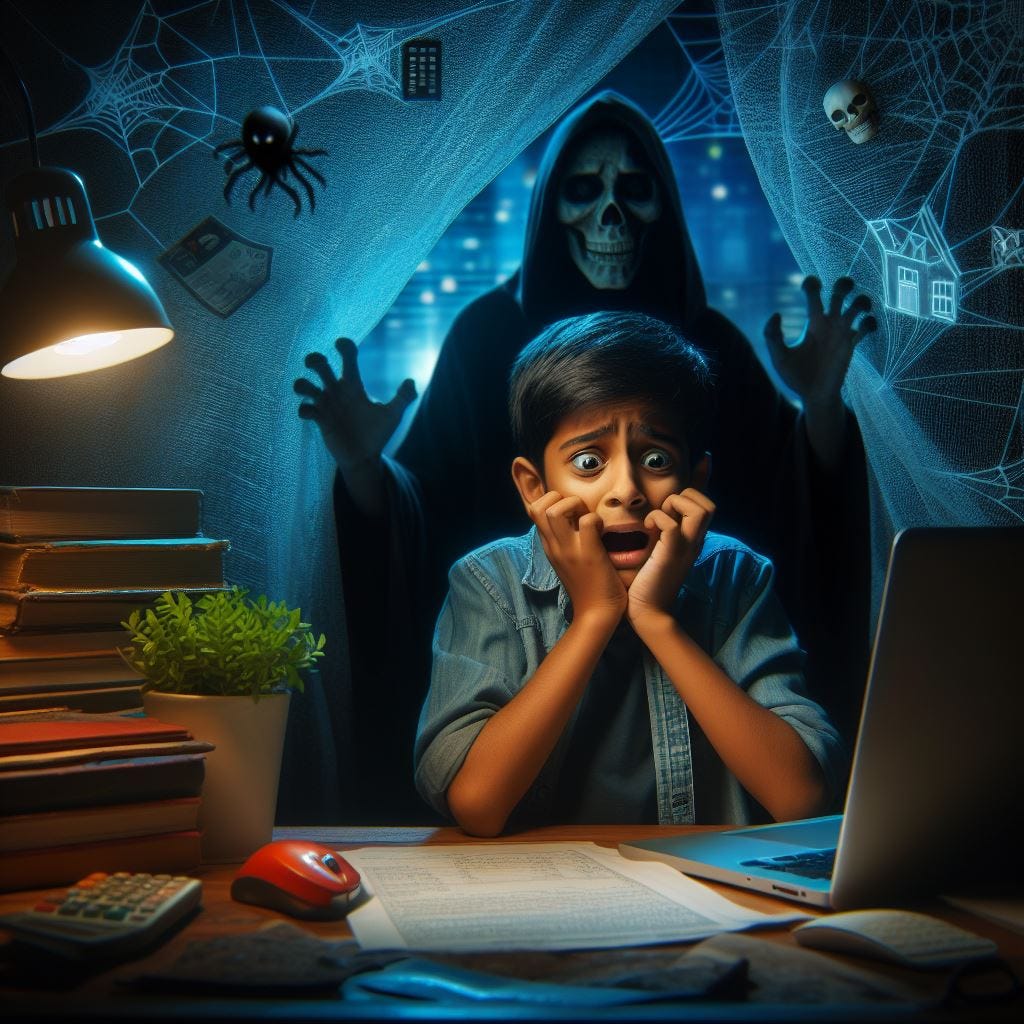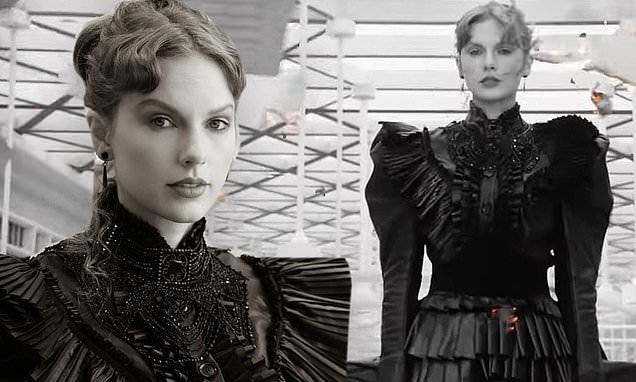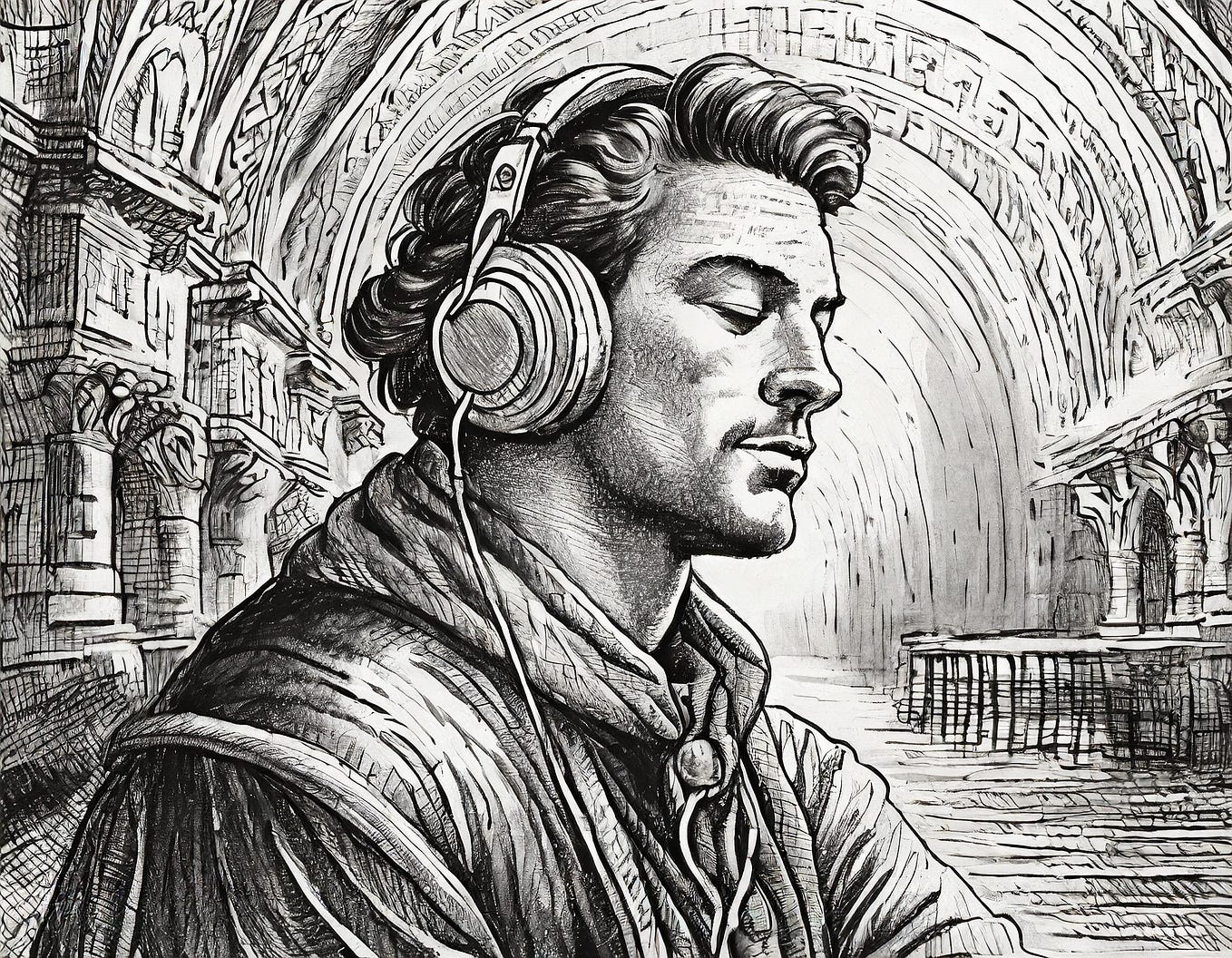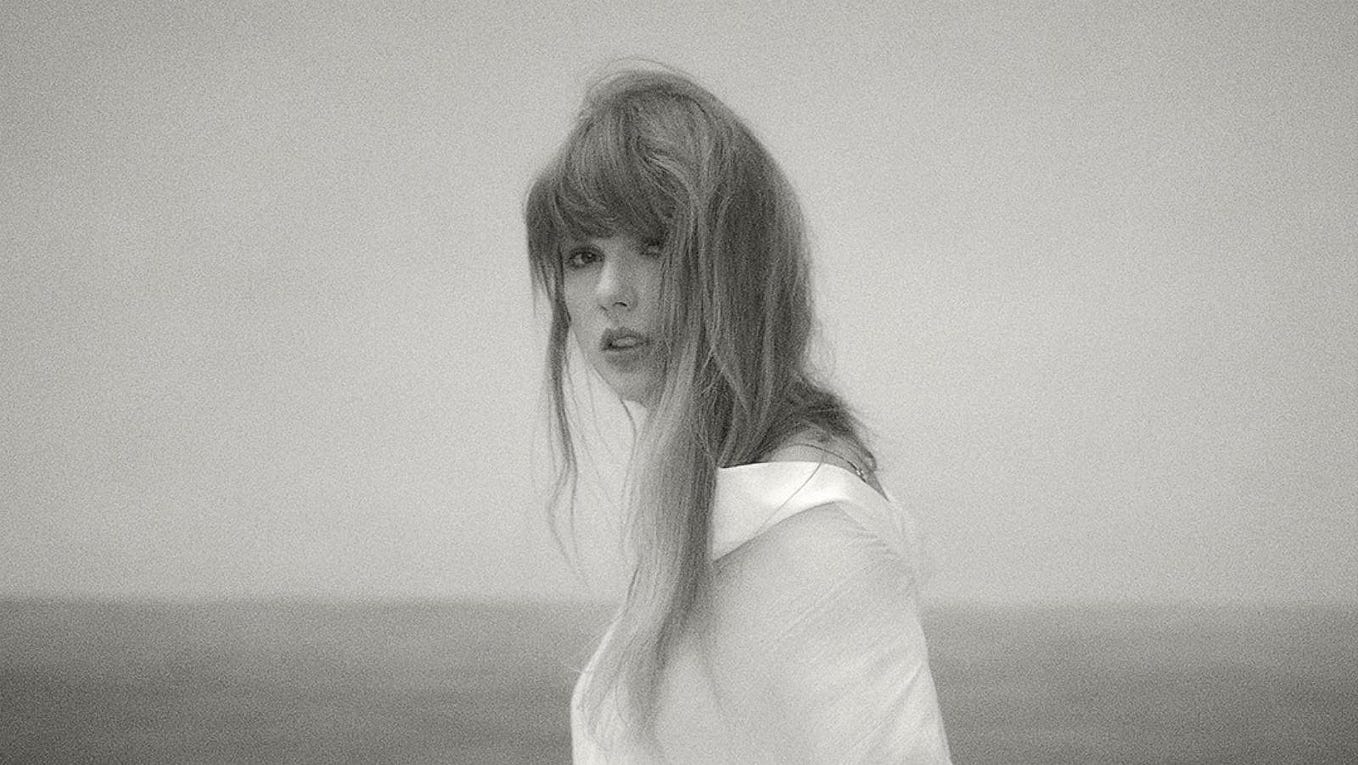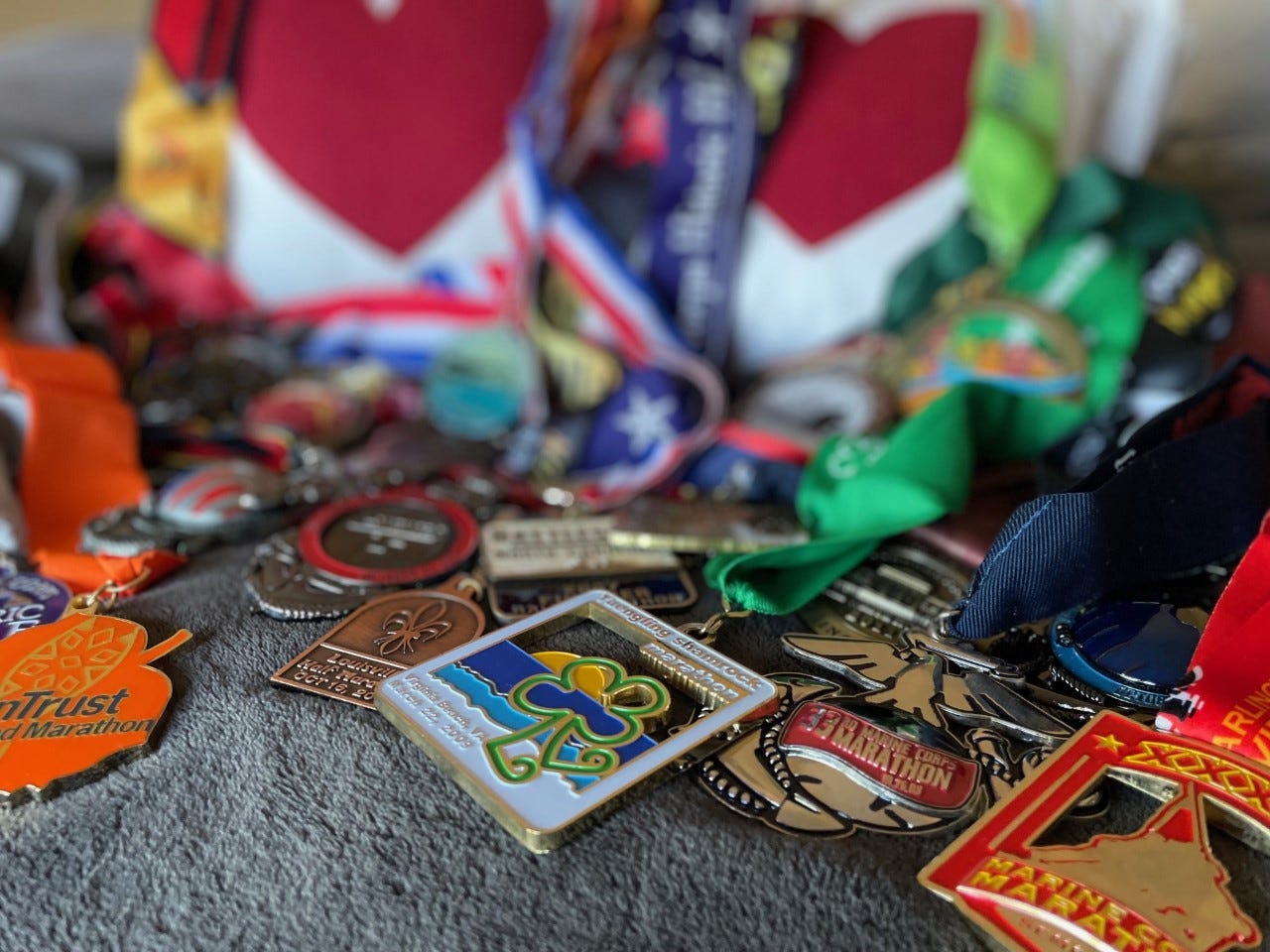Odyssey of Cookie Man: Veteran LA guitarist Brett Farkas reflects on touring with Solomon Burke, early days with Lord Huron, and the magic of band chemistry.
How many guitarists have performed with blues legends at Montreux Jazz Festival, and played on a hit indie rock record with 200+ million streams?
Brett’s done both, and a thousand gigs between.
With over 15 years on the LA music scene, Brett “Cookie Man” Farkas is a band leader, solo artist, educator, and truly exceptional hired gun who lives for those magical mind-reading moments among musicians.
How’d he get here? What’s he learned along the way? Read on.
Detroit Jazz City: Making of a World-Class Guitarist
How did you get started in music?
When I was 10, my family moved to the Detroit area. In 5th grade, the school asked if I wanted to play an instrument, which I just didn’t realize kids were allowed to do. They didn’t offer that in Florida; it was basically either baseball or fishing.
I took violin for two years, but while my parents worked during the day, I’d be watching MTV and pretending the violin was a guitar. For my 12th birthday I got a guitar, and fell in love with it. My dad was always over my shoulder handing me things he wanted to see me get into, and got my teachers showing me jazz, improvisation and blues. We went to the Detroit jazz festival when I was about 15 and met [legendary composer/pianist] Harold McKinney, who ran a weekly jazz workshop. I got a feel for jazz at a young age, and then went to music school for jazz study.
How quickly did things come together when you moved to Los Angeles?
Gradually. I got here at the end of 2003. My friend Joe Ayoub (current bassist for American Idol and Brett’s bandmate in Population Game) and I met in college and moved out together with a collective list of people to get in touch with. We went around town seeing shows, taking every sort of gig from dinner jazz gigs to rich kid projects that never played a gig. About six months in, we were doing sessions for a guy named Chaka Blackmon (co-writer of “Come On Over Baby”) who was producing a track for Solomon Burke’s daughter [Candy Burke]. She said Solomon was looking for a guitar player, and that got me touring. I was really fortunate to catch that gig.
Touring with a Founding Father of Blues
So a year after moving to LA, you’re touring with a blues and soul music legend.
Solomon Burke is one of the original Atlantic Records soul singers. All the British Invasion bands were way into Solomon Burke. His voice is a powerhouse. I can’t even begin to describe Solomon Burke. I’m just the guy that got to hang out with him for a bit.
He had just the year before released this really, really awesome record. He was doing all the jazz fests, rock fests, huge festivals in Europe, and he got this whole resurgence going. So I jumped on the back half of touring that album.
What was it like meeting and working with Solomon?
After I got the gig, Solomon wanted to have me over at his house in Woodland Hills. He was very intimidating.
He had this deep, loud, grumbly voice.
“Where are you from?”
“Detroit.”
“What’s your name?”
“Brett.”
“Brett what?”
“Farkas.”
He throws his arms up. “I’m not gonna remember that, you’re Cookie Man.”
I was like, “What? Okay.”
He would tell stories about doing the Chitlin Circuit and touring with Otis Redding, Joe Tex, Wilson Pickett. It was literally dangerous to be touring the South as black musicians back then.
American music and British music, it all goes back to black soul music. And you think about what they went through to do what they did. It’s a lot different than being a kid from the suburbs and going to Guitar Center, not that there’s anything wrong with that.
How did Solomon’s band work?
It was a huge band: four horns and two keyboards and bass, drums, guitar, background vocalists. Legendary guys from the blues and R&B and funk and jazz scenes.
I basically learned most of those songs on the fly. We didn’t really rehearse. The whole show with the exception of a few songs was in the key of G. Solomon just wanted to keep it in G, and flow from there. That was his key. He just wanted to sing whatever was on the top of his head. The band leader had the soul and gospel background and knew all those old songs. I’d be looking at him like “what song is this?!” in front of 5,000 people.
That’s what it always comes back down to: just listen. Listen before you play anything. You’ll hear it. Just chill, you don’t need to be playing guitar the whole time. There’s organ and there’s bass and he’s singing the heck out of the song, it’s already got it. Just come in when you hear it. Be watching out for the change, and there’s probably a second change coming up later.
You played the Montreux Jazz Festival, among many others.
That night was awesome. We played before BB King. After we got done, BB King’s stage manager tour manager comes up to our band and was like, “BB always has fellow musicians from the other bands sit in on the last few songs. Stay close to the stage if you want to sit in.”
I was waiting by the side stage. All of a sudden, Lee Ritenour shows up, an amazing guitar player and session fusion legend, who has an early album called Captain Fingers and a bazillion things since then. We get on stage and start playing blues. I’m thinking “cool man, I get to play blues with BB, I got some stuff to play!” He points to Lee. Man, Lee played the most understated solo!
I had a moment in my head, “Okay, chill.” That’s what this is about. So then he pointed at me, “young man from Solomon Burke’s band!” I went to play and everything I went to play, I’d have a little moment: “dude, that’s a BB King riff in the first place.”
The LA Scene, and “Bands On Demand”
Tell us about weaving in and out of LA scenes over time.
In between touring, I was meeting more people and trying to find other scenes. Now I have this circle of friends that are playing all the time. I’ll bump into people that I played with 10 years ago, and we’ll start playing again. I notice that if I make a point to go out two or three times a week to see friends play, my phone starts ringing. It’s a constant upkeep of being on the scene and letting people know you’re around. It’s part of your job being a full-time musician.
What made you get serious about your solo stuff?
Being a side person, you’re hired to be a toolbox to give somebody what they want, and hopefully some things they didn’t know they wanted. I take pride in doing a lot of different things, but I wasn’t showcasing any one of them to their fullest potential. So, I made a serious motion toward doing more of my own music, and started this rock and roll project Boys School, because that’s the music I wanted to play, and it felt like LA was starved of rock and roll. It still feels starved of rock and roll.
It’s really hard to have a band. For anyone older than 19, it’s pretty hard to wrangle a bunch of grown adults, everybody’s got their own thing. Plus, if people can play, they’re out catching gigs, and they’re gonna jump ship the minute they get offered a paying gig.
It’s a catch-22 because the good people will be chasing the money to some extent.
I was just like well, I don’t have money to pay people other than what I can get from the bar, so I’ll just have a rotating cast, and I’m not gonna be upset if someone has to bail last minute.
Now, I’ve cultivated a roster of people who can jump in, and I can enjoy the variety of playing my songs with different people. It’s become something I’m known for amongst musicians that they can embrace as well. I’ve come to welcome the spontaneity that comes with having different musicians. Bring it on!
What’s been your experience doing PR as an indie musician?
I’ve found that after the first blast of PR, if you don’t have the money to keep it going or the money to follow up on the opportunities it opens up, it can be a struggle.
With the first Boys School album, I did a PR campaign for a month. I worked with someone specialized in indie PR who some friends recommended. They were sending a bunch of stuff out to blogs, and they did a radio campaign, which was cool — they got it placed on a couple of NPR stations and a good amount of college radio. It started charting, and people started contacting me from radio stations saying “hey, we’re playing this a ton here in Kentucky, when can you come?” But I wasn’t in a position to travel there with a full band and capitalize on it.
However, I do have contacts at home in Detroit, Chicago, San Francisco, New York, and Memphis, where I can get a rockin band together, and get it whipped up for a gig in a 3-hour rehearsal. I’ve learned to just put the weight on my own shoulders. Even if the band’s not gelling, I take it into my own hands to be the show itself.
I think having an LA perspective is not a totally clear lens for how to put a band together.
What do you mean by that?
I think music goes around in different ways in different places. If you play music well in different cities, you start a band, and you stick with it. I think LA is a hard town to get people to listen unless you’re represented. Just getting a crowd going is really hard. I think people listen differently in different places. I know that they do. You go anywhere outside LA and people are all of a sudden listening, and then you go to Europe and people are really listening.
Did I see you were touring in Europe recently?
The beginning of [2018], yeah. I talked my friends into letting me open a few dates on their European run.
That’s awesome. And your friends in this case are the guys from Lord Huron.
Mmhmm, I was in that band, too.
Cool Michigander Dudes: Life in Early Lord Huron
How did you get connected with Lord Huron?
Ben, the singer, made these recordings that blogs just ate up. It was the height of the blog thing, and they loved it. People were asking him, “when are you playing?”, but he didn’t have a band yet. He hit up the drummer, Mark, because they were high school buddies in Michigan, to see if he wanted to come out to LA and form a band, which is how I came into the picture. Mark hit me up because a friend of mine gave Mark my number. Mark and I started talking, and we noticed we’re both from Michigan, and then I met Ben and the other guys, and they were all just cool Michigander dudes. We all just hit it off. So we went around touring the first two EPs before the album.
In those early days, how did the band work?
We were trying to figure out how to play Ben’s music as a five-piece without doing tracks. That was exciting, and that’s what kind of brought me. Ben would pass off other parts that weren’t guitars, that wouldn’t sit normally on the guitar. So I’d have to either figure them out or concoct a guitar version of it. We figured it out gradually. Mark had like, eight hands on the percussion. It still floated, it was still breathing like live people playing.
That’s why I like bouncing off other people, it makes you come out of your own head. It puts you on the spot to take all the concepts you’ve been doing in your bedroom and put them into context for somebody else, and hopefully it gives them what they’re looking for and more.
Eventually, the band starts blowing up.
I had never seen anything grow so organically. Ben put his music out there, people ate it up, and the whole industry came to him. By the second show, every major agency was in the audience. Every week I’d be hearing about who’s interested in it now. Before there was even a real album out, we were getting offered these headline touring slots and festival gigs — we got offered Lollapalooza before there was an album out!
Then Ben signed to a label, so there was an advance, and we recorded the first album. He would basically make [the original demo] recordings on his laptop with MIDI instruments and then want people to replace them with real instruments. I recorded guitar over 3 days. Some of the electric guitars you hear are Ben, but most of the electric parts are me. I also co-wrote the bridge to “She Lit a Fire”.
At some point, you decided to part ways.
We’re all still great friends, but Ben has a vision and a thing that worked, and I respect that. I got to a point where I was moving in my own direction and that wasn’t what I wanted to be doing full-time. I felt like if I’m gonna do [something full-time], I’m gonna do my own music … or a shared thing, because I love collaborating with people where it makes sense. I love being in a group that’s on the same page. It’s hard to find, it just comes around once in a while.
Jamming with Genius: Amnion and Aaron Embry
In between Solomon Burke and Lord Huron, you were part of another memorable project.
I played in a band called Amnion with Aaron Embry (Willie Nelson, Elliott Smith, Edward Sharpe and the Magnetic Zeros). Aaron’s definitely a genius and a hometown legend, and he made a record in 2008 that I got to play on and play live with. He went to the Colburn School growing up here in LA, classically trained. He’s a really warm guy, and he’s sensitive, and just has art and music pouring out of him. Playing with him kept you on your toes.
His music was so dense with chords and melodies and ethereal stuff. And it wasn’t fluff ethereal stuff. He has this concept of textures and layering. He really turned me on to the smearing sound of classical chords and dissonant sound effects piling on, but not necessarily lining up in the most beautiful way.
It’s stuff that people won’t tell you in school. They’re trying to tell you how to play correct harmony and play cleanly, this was kind of the opposite of that, but at the same time, it wasn’t any less musical.
What excites you now about playing music?
There’s something different about being with the same group of people and just doing it all the time, and growing and growing and growing, until you move past that original set of music, and the music takes a whole new shape as you play it more and more. Consistency is ultimately the goal, but the beauty in inconsistency is something to embrace.
That’s the place I want to get to. Where the music is so well known that you can be mind reading, and go in new directions on the fly, and it still lands because you’re just so familiar with each other. I think that’s the most beautiful thing in music.

